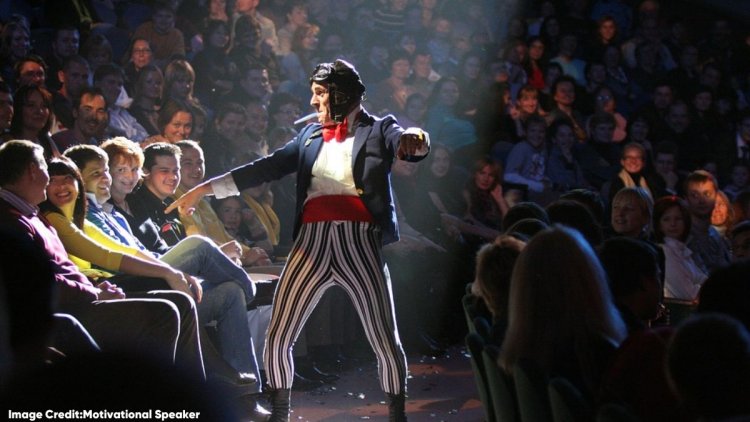Different Ways to Be a Good Entertainer
Different Ways to Be a Good Entertainer
Updated on October 21, 2022 14:37 PM by Andrew Koschiev
Different Ways to Be a Good Entertainer
One of the best and most difficult jobs in the world is that of an entertainer. They put themselves at risk night after night in the hope of making a connection with the audience and evoking an emotional response. It's okay if you weren't born with amazing stage presence; some performers do. Stage presence is unquestionably a skill that can be acquired and improved over time.
Making Your Performance Memorable
Start off strong

You want to grab their attention as soon as possible and keep it for as long as you can because audiences are typically judgmental and impatient. If you're a stand-up comedian, start your performance with a joke about your appearance or something else your audience might notice when they first look at you to break the ice and engage the audience.
If you're a musician, start with a song with a lot of energy rather than a slow one.
Start the performance confidently, but save your best trick for the end.
Have fun performing

People go to see performers for the sake of being entertained. An entertainer going through the motions is not entertaining; audiences want to see performers living out their dreams and giving everything they have on stage. If you leave the stage not exhausted, you still have more to give.
It will be easier for you to have fun the more at ease you become with your performance or routine.
Every time you perform, come up with a new idea for improvement. This will prevent your performance from feeling stale.
Let out your happiness and share it with your audience instead of keeping it inside. They want to experience life through your eyes.
Avoid drawing attention to your errors

Both life and art are full of mistakes. Entertainers and amateurs can be distinguished by how they handle mistakes. Don't worry about making a mistake, and don't tell the audience about it. If you make a mistake, move on. If you don't point it out, the audience probably won't even notice.
Be aware that the audience wants you to succeed. They want to see you triumph over your failures and move on.
Make your show memorable at the end

Ending your performance with a bang is important because it will be the last thing your audience remembers. Leave your audience wanting more. Take a look at your set list and remove one or two items.
Be aware of when it's time to end; sometimes, it's better to end a show early than to prolong something that isn't being enjoyed.
Be considerate of the curfew at your venue. Be on time and avoid running over.
Engage your Target Audience

Sharing a little bit of who you are with your audience is a big part for an entertainer. It is not enough to simply perform for them; you must also emotionally engage them. The more intimate your performance can be, the more your audience will respond to it.
Tell stories about your life in between songs if you're a musician.
Perform crowd work and engage with the audience between jokes if you are a stand-up comedian.
When you dance, don't forget to look out the window and make eye contact with your audience.
Maintain the Comfortability Of The Audience
Make sure your audience is at ease

Watching a performer stumble around on stage is the most frightening thing. Don't let nerves affect your performance; instead, turn that nervous energy into more productive entertainer energy because you are responsible for the happiness of your audience when you perform.
Ensure that neither you nor your audience is caught off guard by blocking out and practicing every part of your performance.
Improve weak points and highlight your strengths

People are drawn to watching performers because they are good at something. However, every performer also has areas where they are weak, and those are the muscles that you need to stretch. Take a class and work with your instructor to strengthen those areas.
Ask for guidance from a fellow performer who excels in the areas you lack.
When you practice, don't do what you already know how to do. Instead, focus on the parts that need to be improved and run them over and over again.





